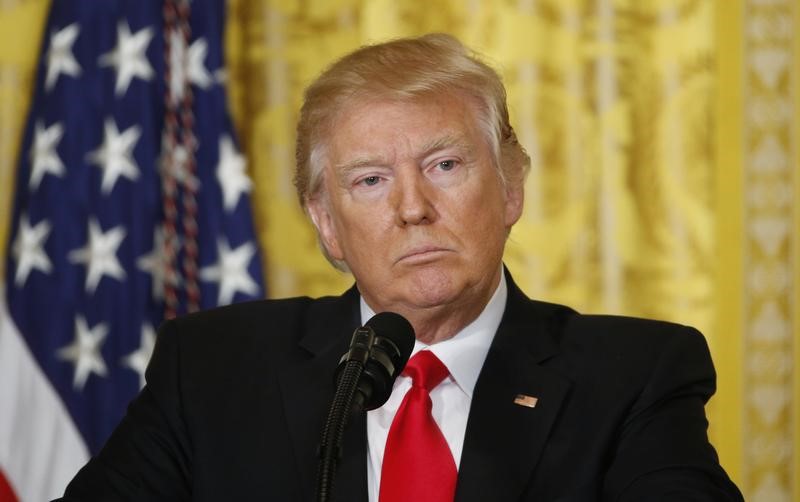By Karen Freifeld
NEW YORK (Reuters) - A U.S. judge will hear arguments on Thursday over whether to grant final approval to a $25 million settlement of fraud lawsuits against President Donald Trump over his Trump University real estate investment seminars, with at least one former student objecting to the deal.
Sherri Simpson of Fort Lauderdale, Florida, who paid $19,000 to learn Trump's investing "secrets," filed court papers earlier this month arguing the class action settlement should not have contained a provision barring her and other students from opting out and suing Trump on their own.
The objection raises the possibility the litigation could continue to dog Trump's presidency. During the campaign, Trump vowed to fight the fraud claims but agreed to the settlement soon after the election. Under the deal, Trump admitted no wrongdoing.
Lawyers for Trump and those representing thousands of other students in two class actions will urge U.S. District Judge Gonzalo Curiel in San Diego to overrule the objection and approve the deal.
The students, who paid as much as $35,000 for the seminars, are expected to recover more than 80 percent of the money they paid.
Though Simpson's lawyer, Gary Friedman, called the settlement "laudable," he said his client wanted to press for a full recovery, as well as punitive damages and other relief. He is planning to argue the deal should be rejected unless she is allowed to do so.
"What Ms. Simpson seeks is her day in court," Friedman said in court papers.
Simpson and other students claim they were lured into the seminars by false promises that they would learn Trump's investment strategies from his "hand-picked" instructors. Trump admitted he did not personally select the instructors but said the claim was sales "puffery."
Rachel Jensen, a class action lawyer for the students, said in a court filing that some 3,730 students submitted claim forms. Two filed objections but only Simpson's lawyers are expected at the hearing.
In court papers, both Jensen and Daniel Petrocelli, a lawyer for Trump, suggested Simpson's objection might be politically motivated. They noted she appeared in an anti-Trump political ad in February 2016.
"Defendants paid $25 million to avoid the uncertainty that political opponents might solicit opt-outs to force a high-profile trial," Jensen said.
Friedman denied any political motive and said he would appeal if the judge overruled the objection.

Trump accused Curiel of bias last year based on the Indiana-born judge's Mexican ancestry.